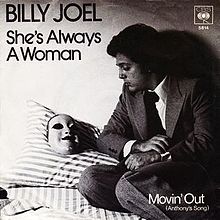 Like all good genres in music, the Britpop bands had their place in the films directed at the 1990s and one of the emerging director during this period was Danny Boyle. Boyle would produce three iconic films of the 1990s; Shallow Grave, Trainspotting and A life less ordinary that would launch not only his career as a director but the career of Ewan MacGregor, who would go on to star in films like Star Wars and Moulin Rouge. Each of Boyle's 90s film contain a kick-ass soundtrack and for today's song I am looking no further than the title track from the film of A life less ordinary.
Like all good genres in music, the Britpop bands had their place in the films directed at the 1990s and one of the emerging director during this period was Danny Boyle. Boyle would produce three iconic films of the 1990s; Shallow Grave, Trainspotting and A life less ordinary that would launch not only his career as a director but the career of Ewan MacGregor, who would go on to star in films like Star Wars and Moulin Rouge. Each of Boyle's 90s film contain a kick-ass soundtrack and for today's song I am looking no further than the title track from the film of A life less ordinary. The request for Ash to work on the soundtrack of the film came straight from Danny Boyle and the title track was released on 13 October 1997. Written by the band's lead singer, Tim Wheeler, who stated the song was written about his muse, the White Goddness, a character from a Robert Graves book. Wheeler describe the songs as a weird love song and a description of how he would sell his soul for something to believe in. The song reached number 10 in the chart.
From Downpatrick in Northern Ireland, Ash formed in 1992 and released their first full album, 1977 in 1996. Hailed as one of the 500 greatest albums of all times by NME, Ash isn't particularly fond of the association with Britpop due to being Irish and in some ways has outlived many of the Britpop bands as they are still performing today. Starting life as a three piece band, they recruited Charlotte Hatherley as a guitar and they would remain a four piece band until 2006, when she left the band.
Like the film for Danny Boyle, this is probably not the most well known of Ash's songs from this period but it has its own charm but you can let your own ears decide.
To hear the song
A life less ordinary by Ash
Written by Tim Wheeler
Released: October 1996
Album: A life less ordinary (Official track)























